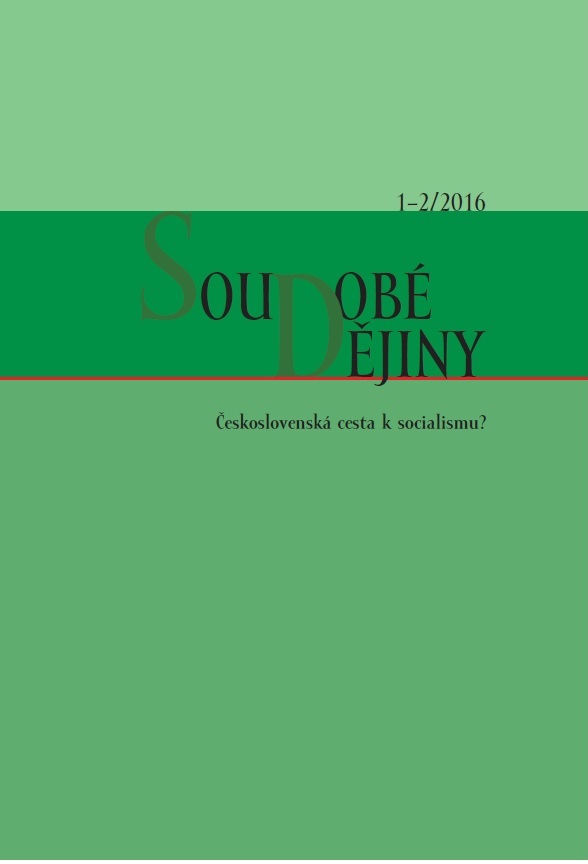Čeští komunističtí intelektuálové a „národní cesta k socialismu"
Czech Communist Intellectuals and the ‘National Road to
Socialism’
Zdeněk Nejedlý and Karel Kosík, 1945–68
Author(s): Michal KopečekSubject(s): History of Communism
Published by: AV ČR - Akademie věd České republiky - Ústav pro soudobé dějiny
Keywords: intellectual activity;Zdeněk Nejedlý;Karel Kosík;socialsm;communism;
Summary/Abstract: In this article the author starts from the notion of ‘national roads to Socialism’ in its two fundamental meanings – the political-tactical and the theoretical. He seeks to demonstrate, using the Czech example, the complicated dynamic development of the central themes of the ‘ideological whirlwinds’ of the twentieth century which are concentrated in the terms ‘revolution’ and ‘national emancipation’. To this end he focuses on two important Czech Communist political thinkers and activists – the historian, musicologist, and minister in post-war Czechoslovak governments, Zdeněk Nejedlý (1878–1962), and the philosopher and essayist Karel Kosík (1926–2003) – each of whom, with regard to their generations and their lives in general, represents a different Czech radical left-wing intellectual approach to the challenges of his times. Each man, in his own distinctive way, sought to formulate the prerequisites and conceptual framework of the Czechoslovak, or Czech, ‘national road’ to Socialism, but also to warn about pitfalls. With his early post-Second World War conception of Czechoslovak Communists as the heirs of progressive national traditions, Nejedlý sought to show how the legacy of the Hussite Revolution of the fi fteenth century and the National Awakening of the nineteenth century was currently relevant to Communist policy. Indeed, on the whole he succeeded in linking it with Communist Party efforts to achieve the historical legitimation of their government and thus create the offi cial framework of the interpretation of Czech history which remained authoritatively valid throughout the 1950s. Kosík, by contrast, fi rst attempted, from radically left-wing positions, to work out alternative, implicitly polemical conceptions of national revolutionary continuity, which sought inspiration amongst Czech radical democrats and their revolutionary expression in 1848, and he thus became, from the late 1950s, one of the chief representatives of Marxist revisionism in Czechoslovakia, a philosopher-critic of Stalinism and the dehumanization of modern man and woman under the pressure of abstract ideologies and the apparatus of power and the bureaucracy, eventually earning the reputation of the philosopher of the Prague Spring of 1968. The author does not seek to portray these two fi gures exhaustively; instead, his aim is to provide the basic contours of how each tried to solve the dilemma between the nationally particular and the revolutionarily universal, which all Communist and radical Socialists thinkers of their time faced and somehow had to come to terms with. The author sets the intellectual and creative development of these two fi gures into the wider political context from the end of the Second World War to the Prague Spring.
Journal: Soudobé Dějiny
- Issue Year: XXIII/2016
- Issue No: 1-2
- Page Range: 77-117
- Page Count: 41
- Language: Czech

